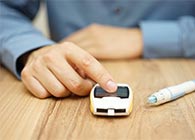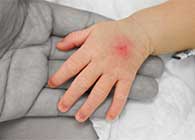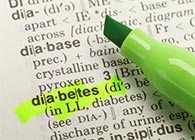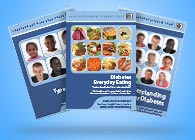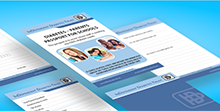Passport for Diabetes in Care Settings
Passport for Diabetes in Care Settings
There has been a lot of publicity about the numbers of people with diabetes in residential care, especially the elderly and people with learning diabilities. People in residential care and those providing their care are faced with a particular set of difficulties and IDDT is particularly concerned at the high number of unnecessary hospital admissions among these vulnerable groups.
In order to try and remedy this situation, IDDT has been working closely with the Institute of Diabetes for Older People (IDOP) and the English Community Care Association (ECCA) to produce a new ‘Passport for Diabetes in Care Settings’. The Passport is intended to be used in settings such as residential homes to provide carers with vital information about their clients’ diabetes needs and it will benefit both the care staff and those with diabetes.
The system is such that residential care homes, through no fault of their own, are underfunded, with high staff turnovers and with very little access to the training necessary to manage diabetes in a care setting. The result of this is that if someone has a low or a high blood sugar, then very often the first reaction of a carer is to call 999, resulting in an unnecessary hospital admission – an admission that could have been avoided had some simple steps been followed.
The Passport draws together the essential elements of a person’s care needs in relation to their diabetes, into one simple, user-friendly document. Care staff can use the Passport to familiarise themselves with those needs quickly and easily and it provides them with instruction as to what to do should problems arise.
The Passport provides basic personal information, contact details of relevant health professionals, how the individual manages their diabetes and what to do if problems occur.
Martin Green, ECCA’s CEO commented: ‘Our Passport is an extremely practical booklet. It will help staff in care homes and also community and acute health services, to really understand the person with diabetes and help them to deliver appropriate care and support. The Passport’s publication will help both residents and staff to manage diabetes more appropriately.’
Free samples of the ‘Passport for Diabetes in Care Settings’ are available by contacting IDDT at: martin@iddtinternational.org, by calling Martin on 01604 622837, or order the printed version via the – IDDT Leaflets order form.





